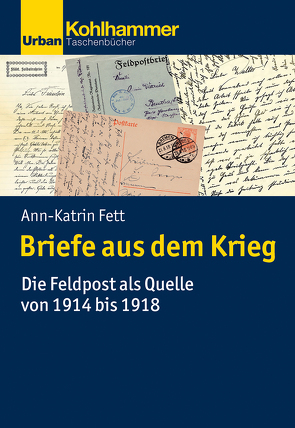
It=s difficult for us today to imagine the inhuman conditions in which soldiers fought on the various sections of the front during the First World War & historical sources such as newspaper articles, reports from the front and official announcements provide a distorted picture of the situation at the front in many respects. On the one hand, these descriptions were usually written by people who had only limited knowledge of the horrors of trench warfare. On the other, strict censorship was applied during the war in order to keep up morale among the general population. Reporting of the mood among the troops was therefore quite systematically embellished. But how did ordinary soldiers actually feel? How did their mood develop during the years of war? What did people at the front think about the decisions being taken by the government and general staff? Did the initial war euphoria last, or did increasing disillusionment set in as the terror continued? These and many other questions are of urgent interest, and not only to historians: answering them could place the First World War in a completely new light. Ann-Katrin Fett has now carried out an analysis of letters sent from the front, as a source genre that has so far received too little attention. These letters & exchanged between front-line soldiers and their loved ones at home & provide incomparable insights into the thoughts of a group of people whose testimony has otherwise scarcely featured in the historical sources. The letters reflect intimate feelings and judgements, largely without ulterior motives, and reveal both social moods and wider patterns of perception. The author investigates the way in which the brutal battles of matériel and the sight of landscapes with craters stretching across them altered contemporaries= views of death and of their own mortality, and the ways in which this was reflected in their writing. She analyses the dissonances that arose from the divergent worlds of experience on the front and at home, and the role that letters from the front played in bridging these gaps. The letters show numerous linguistic strategies for coping and invocatory speech acts that were used to establish distance from the reality of war. Distance was often expressed through omissions and playing down of events, as well as through heavy concentration on everyday and seemingly apolitical topics. Through her linguistic approach, the author succeeds in showing how people positioned themselves in their letters over several years relative to the continuing upheaval. One important finding is that the language used in letters from the front changed between 1914 and 1918. This, in turn, is used to show that there was a more general development in the history of mentality. One chapter is dedicated to each year of the war in order to make the chronological development of linguistic discourse tangible. The source material includes letters from the front and from civilians, from women and men, and from different age groups and milieus.
Aktualisiert: 2023-06-30
> findR *
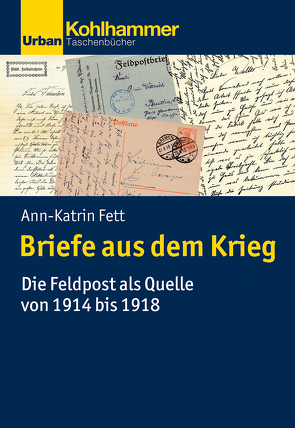
It=s difficult for us today to imagine the inhuman conditions in which soldiers fought on the various sections of the front during the First World War & historical sources such as newspaper articles, reports from the front and official announcements provide a distorted picture of the situation at the front in many respects. On the one hand, these descriptions were usually written by people who had only limited knowledge of the horrors of trench warfare. On the other, strict censorship was applied during the war in order to keep up morale among the general population. Reporting of the mood among the troops was therefore quite systematically embellished. But how did ordinary soldiers actually feel? How did their mood develop during the years of war? What did people at the front think about the decisions being taken by the government and general staff? Did the initial war euphoria last, or did increasing disillusionment set in as the terror continued? These and many other questions are of urgent interest, and not only to historians: answering them could place the First World War in a completely new light. Ann-Katrin Fett has now carried out an analysis of letters sent from the front, as a source genre that has so far received too little attention. These letters & exchanged between front-line soldiers and their loved ones at home & provide incomparable insights into the thoughts of a group of people whose testimony has otherwise scarcely featured in the historical sources. The letters reflect intimate feelings and judgements, largely without ulterior motives, and reveal both social moods and wider patterns of perception. The author investigates the way in which the brutal battles of matériel and the sight of landscapes with craters stretching across them altered contemporaries= views of death and of their own mortality, and the ways in which this was reflected in their writing. She analyses the dissonances that arose from the divergent worlds of experience on the front and at home, and the role that letters from the front played in bridging these gaps. The letters show numerous linguistic strategies for coping and invocatory speech acts that were used to establish distance from the reality of war. Distance was often expressed through omissions and playing down of events, as well as through heavy concentration on everyday and seemingly apolitical topics. Through her linguistic approach, the author succeeds in showing how people positioned themselves in their letters over several years relative to the continuing upheaval. One important finding is that the language used in letters from the front changed between 1914 and 1918. This, in turn, is used to show that there was a more general development in the history of mentality. One chapter is dedicated to each year of the war in order to make the chronological development of linguistic discourse tangible. The source material includes letters from the front and from civilians, from women and men, and from different age groups and milieus.
Aktualisiert: 2023-06-30
> findR *
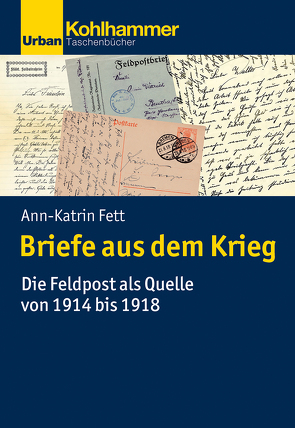
It=s difficult for us today to imagine the inhuman conditions in which soldiers fought on the various sections of the front during the First World War & historical sources such as newspaper articles, reports from the front and official announcements provide a distorted picture of the situation at the front in many respects. On the one hand, these descriptions were usually written by people who had only limited knowledge of the horrors of trench warfare. On the other, strict censorship was applied during the war in order to keep up morale among the general population. Reporting of the mood among the troops was therefore quite systematically embellished. But how did ordinary soldiers actually feel? How did their mood develop during the years of war? What did people at the front think about the decisions being taken by the government and general staff? Did the initial war euphoria last, or did increasing disillusionment set in as the terror continued? These and many other questions are of urgent interest, and not only to historians: answering them could place the First World War in a completely new light. Ann-Katrin Fett has now carried out an analysis of letters sent from the front, as a source genre that has so far received too little attention. These letters & exchanged between front-line soldiers and their loved ones at home & provide incomparable insights into the thoughts of a group of people whose testimony has otherwise scarcely featured in the historical sources. The letters reflect intimate feelings and judgements, largely without ulterior motives, and reveal both social moods and wider patterns of perception. The author investigates the way in which the brutal battles of matériel and the sight of landscapes with craters stretching across them altered contemporaries= views of death and of their own mortality, and the ways in which this was reflected in their writing. She analyses the dissonances that arose from the divergent worlds of experience on the front and at home, and the role that letters from the front played in bridging these gaps. The letters show numerous linguistic strategies for coping and invocatory speech acts that were used to establish distance from the reality of war. Distance was often expressed through omissions and playing down of events, as well as through heavy concentration on everyday and seemingly apolitical topics. Through her linguistic approach, the author succeeds in showing how people positioned themselves in their letters over several years relative to the continuing upheaval. One important finding is that the language used in letters from the front changed between 1914 and 1918. This, in turn, is used to show that there was a more general development in the history of mentality. One chapter is dedicated to each year of the war in order to make the chronological development of linguistic discourse tangible. The source material includes letters from the front and from civilians, from women and men, and from different age groups and milieus.
Aktualisiert: 2023-06-30
> findR *
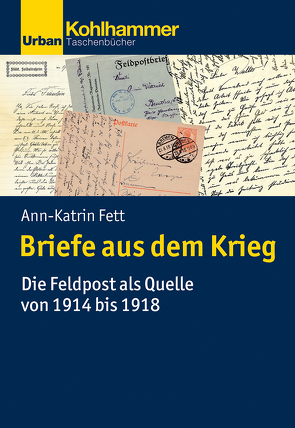
It=s difficult for us today to imagine the inhuman conditions in which soldiers fought on the various sections of the front during the First World War & historical sources such as newspaper articles, reports from the front and official announcements provide a distorted picture of the situation at the front in many respects. On the one hand, these descriptions were usually written by people who had only limited knowledge of the horrors of trench warfare. On the other, strict censorship was applied during the war in order to keep up morale among the general population. Reporting of the mood among the troops was therefore quite systematically embellished. But how did ordinary soldiers actually feel? How did their mood develop during the years of war? What did people at the front think about the decisions being taken by the government and general staff? Did the initial war euphoria last, or did increasing disillusionment set in as the terror continued? These and many other questions are of urgent interest, and not only to historians: answering them could place the First World War in a completely new light. Ann-Katrin Fett has now carried out an analysis of letters sent from the front, as a source genre that has so far received too little attention. These letters & exchanged between front-line soldiers and their loved ones at home & provide incomparable insights into the thoughts of a group of people whose testimony has otherwise scarcely featured in the historical sources. The letters reflect intimate feelings and judgements, largely without ulterior motives, and reveal both social moods and wider patterns of perception. The author investigates the way in which the brutal battles of matériel and the sight of landscapes with craters stretching across them altered contemporaries= views of death and of their own mortality, and the ways in which this was reflected in their writing. She analyses the dissonances that arose from the divergent worlds of experience on the front and at home, and the role that letters from the front played in bridging these gaps. The letters show numerous linguistic strategies for coping and invocatory speech acts that were used to establish distance from the reality of war. Distance was often expressed through omissions and playing down of events, as well as through heavy concentration on everyday and seemingly apolitical topics. Through her linguistic approach, the author succeeds in showing how people positioned themselves in their letters over several years relative to the continuing upheaval. One important finding is that the language used in letters from the front changed between 1914 and 1918. This, in turn, is used to show that there was a more general development in the history of mentality. One chapter is dedicated to each year of the war in order to make the chronological development of linguistic discourse tangible. The source material includes letters from the front and from civilians, from women and men, and from different age groups and milieus.
Aktualisiert: 2023-06-30
> findR *
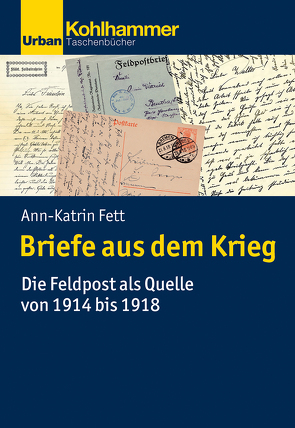
It=s difficult for us today to imagine the inhuman conditions in which soldiers fought on the various sections of the front during the First World War & historical sources such as newspaper articles, reports from the front and official announcements provide a distorted picture of the situation at the front in many respects. On the one hand, these descriptions were usually written by people who had only limited knowledge of the horrors of trench warfare. On the other, strict censorship was applied during the war in order to keep up morale among the general population. Reporting of the mood among the troops was therefore quite systematically embellished. But how did ordinary soldiers actually feel? How did their mood develop during the years of war? What did people at the front think about the decisions being taken by the government and general staff? Did the initial war euphoria last, or did increasing disillusionment set in as the terror continued? These and many other questions are of urgent interest, and not only to historians: answering them could place the First World War in a completely new light. Ann-Katrin Fett has now carried out an analysis of letters sent from the front, as a source genre that has so far received too little attention. These letters & exchanged between front-line soldiers and their loved ones at home & provide incomparable insights into the thoughts of a group of people whose testimony has otherwise scarcely featured in the historical sources. The letters reflect intimate feelings and judgements, largely without ulterior motives, and reveal both social moods and wider patterns of perception. The author investigates the way in which the brutal battles of matériel and the sight of landscapes with craters stretching across them altered contemporaries= views of death and of their own mortality, and the ways in which this was reflected in their writing. She analyses the dissonances that arose from the divergent worlds of experience on the front and at home, and the role that letters from the front played in bridging these gaps. The letters show numerous linguistic strategies for coping and invocatory speech acts that were used to establish distance from the reality of war. Distance was often expressed through omissions and playing down of events, as well as through heavy concentration on everyday and seemingly apolitical topics. Through her linguistic approach, the author succeeds in showing how people positioned themselves in their letters over several years relative to the continuing upheaval. One important finding is that the language used in letters from the front changed between 1914 and 1918. This, in turn, is used to show that there was a more general development in the history of mentality. One chapter is dedicated to each year of the war in order to make the chronological development of linguistic discourse tangible. The source material includes letters from the front and from civilians, from women and men, and from different age groups and milieus.
Aktualisiert: 2023-05-05
> findR *
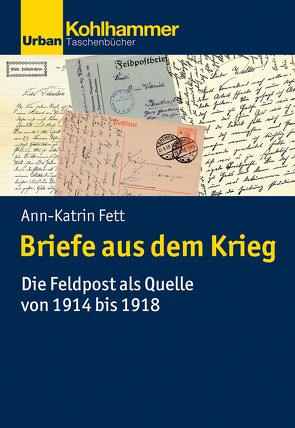
It=s difficult for us today to imagine the inhuman conditions in which soldiers fought on the various sections of the front during the First World War & historical sources such as newspaper articles, reports from the front and official announcements provide a distorted picture of the situation at the front in many respects. On the one hand, these descriptions were usually written by people who had only limited knowledge of the horrors of trench warfare. On the other, strict censorship was applied during the war in order to keep up morale among the general population. Reporting of the mood among the troops was therefore quite systematically embellished. But how did ordinary soldiers actually feel? How did their mood develop during the years of war? What did people at the front think about the decisions being taken by the government and general staff? Did the initial war euphoria last, or did increasing disillusionment set in as the terror continued? These and many other questions are of urgent interest, and not only to historians: answering them could place the First World War in a completely new light. Ann-Katrin Fett has now carried out an analysis of letters sent from the front, as a source genre that has so far received too little attention. These letters & exchanged between front-line soldiers and their loved ones at home & provide incomparable insights into the thoughts of a group of people whose testimony has otherwise scarcely featured in the historical sources. The letters reflect intimate feelings and judgements, largely without ulterior motives, and reveal both social moods and wider patterns of perception. The author investigates the way in which the brutal battles of matériel and the sight of landscapes with craters stretching across them altered contemporaries= views of death and of their own mortality, and the ways in which this was reflected in their writing. She analyses the dissonances that arose from the divergent worlds of experience on the front and at home, and the role that letters from the front played in bridging these gaps. The letters show numerous linguistic strategies for coping and invocatory speech acts that were used to establish distance from the reality of war. Distance was often expressed through omissions and playing down of events, as well as through heavy concentration on everyday and seemingly apolitical topics. Through her linguistic approach, the author succeeds in showing how people positioned themselves in their letters over several years relative to the continuing upheaval. One important finding is that the language used in letters from the front changed between 1914 and 1918. This, in turn, is used to show that there was a more general development in the history of mentality. One chapter is dedicated to each year of the war in order to make the chronological development of linguistic discourse tangible. The source material includes letters from the front and from civilians, from women and men, and from different age groups and milieus.
Aktualisiert: 2023-05-05
> findR *
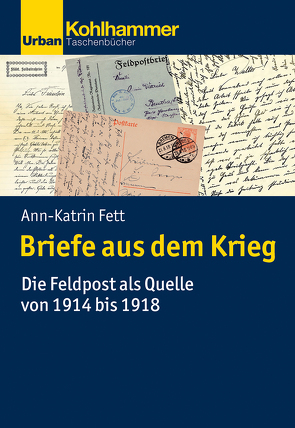
It=s difficult for us today to imagine the inhuman conditions in which soldiers fought on the various sections of the front during the First World War & historical sources such as newspaper articles, reports from the front and official announcements provide a distorted picture of the situation at the front in many respects. On the one hand, these descriptions were usually written by people who had only limited knowledge of the horrors of trench warfare. On the other, strict censorship was applied during the war in order to keep up morale among the general population. Reporting of the mood among the troops was therefore quite systematically embellished. But how did ordinary soldiers actually feel? How did their mood develop during the years of war? What did people at the front think about the decisions being taken by the government and general staff? Did the initial war euphoria last, or did increasing disillusionment set in as the terror continued? These and many other questions are of urgent interest, and not only to historians: answering them could place the First World War in a completely new light. Ann-Katrin Fett has now carried out an analysis of letters sent from the front, as a source genre that has so far received too little attention. These letters & exchanged between front-line soldiers and their loved ones at home & provide incomparable insights into the thoughts of a group of people whose testimony has otherwise scarcely featured in the historical sources. The letters reflect intimate feelings and judgements, largely without ulterior motives, and reveal both social moods and wider patterns of perception. The author investigates the way in which the brutal battles of matériel and the sight of landscapes with craters stretching across them altered contemporaries= views of death and of their own mortality, and the ways in which this was reflected in their writing. She analyses the dissonances that arose from the divergent worlds of experience on the front and at home, and the role that letters from the front played in bridging these gaps. The letters show numerous linguistic strategies for coping and invocatory speech acts that were used to establish distance from the reality of war. Distance was often expressed through omissions and playing down of events, as well as through heavy concentration on everyday and seemingly apolitical topics. Through her linguistic approach, the author succeeds in showing how people positioned themselves in their letters over several years relative to the continuing upheaval. One important finding is that the language used in letters from the front changed between 1914 and 1918. This, in turn, is used to show that there was a more general development in the history of mentality. One chapter is dedicated to each year of the war in order to make the chronological development of linguistic discourse tangible. The source material includes letters from the front and from civilians, from women and men, and from different age groups and milieus.
Aktualisiert: 2023-05-05
> findR *
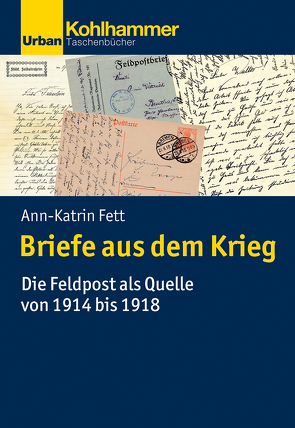
It=s difficult for us today to imagine the inhuman conditions in which soldiers fought on the various sections of the front during the First World War & historical sources such as newspaper articles, reports from the front and official announcements provide a distorted picture of the situation at the front in many respects. On the one hand, these descriptions were usually written by people who had only limited knowledge of the horrors of trench warfare. On the other, strict censorship was applied during the war in order to keep up morale among the general population. Reporting of the mood among the troops was therefore quite systematically embellished. But how did ordinary soldiers actually feel? How did their mood develop during the years of war? What did people at the front think about the decisions being taken by the government and general staff? Did the initial war euphoria last, or did increasing disillusionment set in as the terror continued? These and many other questions are of urgent interest, and not only to historians: answering them could place the First World War in a completely new light. Ann-Katrin Fett has now carried out an analysis of letters sent from the front, as a source genre that has so far received too little attention. These letters & exchanged between front-line soldiers and their loved ones at home & provide incomparable insights into the thoughts of a group of people whose testimony has otherwise scarcely featured in the historical sources. The letters reflect intimate feelings and judgements, largely without ulterior motives, and reveal both social moods and wider patterns of perception. The author investigates the way in which the brutal battles of matériel and the sight of landscapes with craters stretching across them altered contemporaries= views of death and of their own mortality, and the ways in which this was reflected in their writing. She analyses the dissonances that arose from the divergent worlds of experience on the front and at home, and the role that letters from the front played in bridging these gaps. The letters show numerous linguistic strategies for coping and invocatory speech acts that were used to establish distance from the reality of war. Distance was often expressed through omissions and playing down of events, as well as through heavy concentration on everyday and seemingly apolitical topics. Through her linguistic approach, the author succeeds in showing how people positioned themselves in their letters over several years relative to the continuing upheaval. One important finding is that the language used in letters from the front changed between 1914 and 1918. This, in turn, is used to show that there was a more general development in the history of mentality. One chapter is dedicated to each year of the war in order to make the chronological development of linguistic discourse tangible. The source material includes letters from the front and from civilians, from women and men, and from different age groups and milieus.
Aktualisiert: 2023-04-04
> findR *
MEHR ANZEIGEN
Bücher von Fett, Ann-Katrin
Sie suchen ein Buch oder Publikation vonFett, Ann-Katrin ? Bei Buch findr finden Sie alle Bücher Fett, Ann-Katrin.
Entdecken Sie neue Bücher oder Klassiker für Sie selbst oder zum Verschenken. Buch findr hat zahlreiche Bücher
von Fett, Ann-Katrin im Sortiment. Nehmen Sie sich Zeit zum Stöbern und finden Sie das passende Buch oder die
Publiketion für Ihr Lesevergnügen oder Ihr Interessensgebiet. Stöbern Sie durch unser Angebot und finden Sie aus
unserer großen Auswahl das Buch, das Ihnen zusagt. Bei Buch findr finden Sie Romane, Ratgeber, wissenschaftliche und
populärwissenschaftliche Bücher uvm. Bestellen Sie Ihr Buch zu Ihrem Thema einfach online und lassen Sie es sich
bequem nach Hause schicken. Wir wünschen Ihnen schöne und entspannte Lesemomente mit Ihrem Buch
von Fett, Ann-Katrin .
Fett, Ann-Katrin - Große Auswahl an Publikationen bei Buch findr
Bei uns finden Sie Bücher aller beliebter Autoren, Neuerscheinungen, Bestseller genauso wie alte Schätze. Bücher
von Fett, Ann-Katrin die Ihre Fantasie anregen und Bücher, die Sie weiterbilden und Ihnen wissenschaftliche Fakten
vermitteln. Ganz nach Ihrem Geschmack ist das passende Buch für Sie dabei. Finden Sie eine große Auswahl Bücher
verschiedenster Genres, Verlage, Schlagworte Genre bei Buchfindr:
Unser Repertoire umfasst Bücher von
- Fettback, Dieter
- Fettback, Thomas
- Fette, Andreas
- Fette, Angela
- Fette, Gunter
- Fette, Klaus Michael
- Fette, Max
- Fette, Monika
- Fette, Ute
- Fettel, Michael
Sie haben viele Möglichkeiten bei Buch findr die passenden Bücher für Ihr Lesevergnügen zu entdecken. Nutzen Sie
unsere Suchfunktionen, um zu stöbern und für Sie interessante Bücher in den unterschiedlichen Genres und Kategorien
zu finden. Neben Büchern von Fett, Ann-Katrin und Büchern aus verschiedenen Kategorien finden Sie schnell und
einfach auch eine Auflistung thematisch passender Publikationen. Probieren Sie es aus, legen Sie jetzt los! Ihrem
Lesevergnügen steht nichts im Wege. Nutzen Sie die Vorteile Ihre Bücher online zu kaufen und bekommen Sie die
bestellten Bücher schnell und bequem zugestellt. Nehmen Sie sich die Zeit, online die Bücher Ihrer Wahl anzulesen,
Buchempfehlungen und Rezensionen zu studieren, Informationen zu Autoren zu lesen. Viel Spaß beim Lesen wünscht Ihnen
das Team von Buchfindr.







